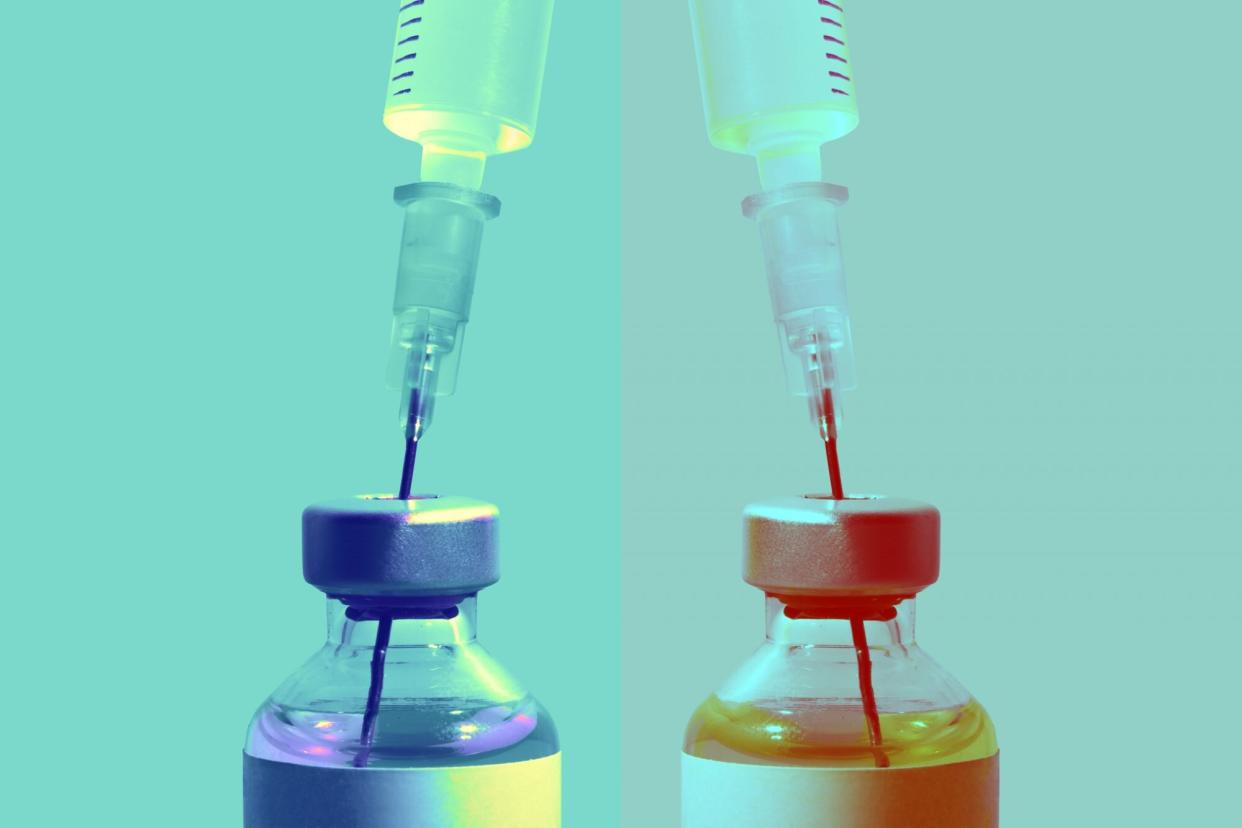The Johnson & Johnson COVID-19 Booster Just Received a Major Endorsement

Getty Images
A booster shot for Johnson and Johnson's single-dose COVID-19 vaccine could soon be on the way. An advisory panel for the U.S. Food and Drug Administration voted Friday to recommend a second shot of J&J's vaccine to be given at least two months after the initial inoculation. So far, more than 15 million Americans have received their first dose of J&J, according to recent data from the Centers for Disease Control and Prevention.
In terms of the next steps, the vaccine advisory group for the CDC is set to meet in the coming days to determine who should receive a Johnson & Johnson booster (which would be a second dose of the company's vaccine), according to CNBC. And, should the group announce a recommendation, a rollout of J&J boosters could be imminent. (Read more: Everything You Need to Know About Johnson & Johnson's COVID-19 Vaccine)
Earlier this month, Johnson & Johnson announced that hit had submitted data to the FDA to support the authorization of its booster shot for folks 18 years of age or older. The company included the results of a study that found those who received a J&J booster 56 days after the initial dose provided 94 percent protection against symptomatic COVID-19 (moderate to severe/critical cases). "At the same time, we continue to recognize that a single-shot COVID-19 vaccine that provides strong and long-lasting protection remains a crucial component to vaccinating the global population," said Mathai Mammen, M.D., Ph.D., Global Head, Janssen Research & Development, Johnson & Johnson, in a press release earlier this month. (Related: Johnson & Johnson Says a Booster of Its COVID-19 Vaccine Offers Stronger Protection)
The Johnson & Johnson shot is one of three COVID-19 vaccines currently available in the U.S., with the other two being the dual-dose Pfizer-BioNTech and Moderna vaccines. Unlike the Pfizer and Moderna vaccines, the J&J's uses an inactivated virus (an adenovirus, to be precise) to instruct the body to deliver proteins (SARS-Cov-2, the virus that causes coronavirus}) to trigger an immune response against the virus. Pfizer and Moderna, on the other hand, look to messenger RNA (mRNA) to combat the virus. (Related: Johnson & Johnson Recipients Might Benefit from Mixing COVID Booster Shots, Says Study)
The recent news about the Johnson & Johnson booster comes on the heels of the FDA panel's recommendation of emergency use authorization for a third shot of the Moderna vaccine. The panel recommended a booster dose six months after an initial inoculation for specific groups of individuals, including folks 65+ and those who are considered high risk for severe COVID-19, according to The New York Times. Currently, the FDA has only fully approved the Pfizer COVID-19 vaccine, as well as emergency use authorization of its booster. (See: This Is Who's Eligible to Receive a Pfizer COVID-19 Booster Shot)
While only select folks may be eligible for COVID-19 boosters at the moment, the vaccines themselves remain one of the best forms of protection against the virus.
The information in this story is accurate as of press time. As updates about coronavirus COVID-19 continue to evolve, it's possible that some information and recommendations in this story have changed since initial publication. We encourage you to check in regularly with resources such as the CDC, the WHO, and your local public health department for the most up-to-date data and recommendations.

